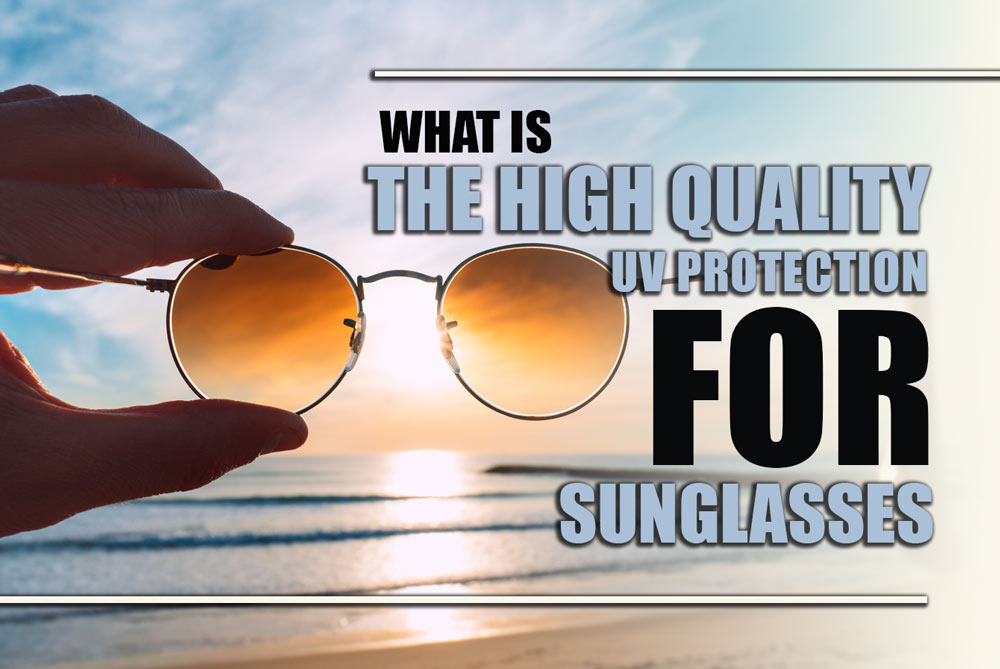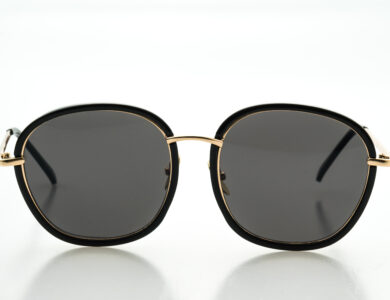
When you go outdoors on a bright day, you probably won’t give it much thought, but just as your skin may get burnt, so can your eyes.
The sun can cause both sunburn and eye damage. The sun’s ultraviolet rays can pass through clouds and fog regardless of the season or temperature outdoors, so there is always a chance that our eyes might be damaged by ultraviolet light at some point throughout the year.
Reflection of UVA and UVB rays off surfaces such as water, snow, sand, and even buildings may increase exposure and quadruple the risk of UV damage to your eyes in specific environments.
Therefore, how can you protect your eyes against this damage, leading to redness, poor vision, and even more severe eye conditions such as cataracts and macular degeneration?
The capacity of efficient sunglasses to shield the wearer’s eyes from the sun’s potentially damaging ultraviolet rays is the characteristic that is considered to be of the utmost significance.
There is a wide variety of brands of sunglasses like Rayban sunglasses, but how do you pick sunglasses that are fully secure for your eyes?
Here are five techniques to determine this critical fact, so be with us during this article.
Types of UV protection for sunglasses
There are two different kinds of protection against UV rays:
- A 100% UV protection shields the wearer from all forms of ultraviolet radiation.
- UV protection of 50% effectively blocks the shorter, more harmful wavelengths of ultraviolet radiation while allowing the longer, less harmful wavelengths to pass unimpeded.
To what extent should sunglasses shield your eyes from sunlight?
Sunglasses with a UV 400 rating are the best option for optimal protection. UV 400 filters out over one hundred percent of the sun’s potentially damaging ultraviolet radiation.
This guarantees that light rays with wavelengths of up to 400 nanometers, such as UVA and UVB, are prevented from penetrating the material.
If you want your sunglasses to be deemed UV-protective, they must block 75% to 90% of visible light and UVA and UVB protection, which block 99% of ultraviolet radiation.
Most sunglasses have a label indicating the amount of UV protection they give. Keep an eye out for brands that state the product offers 100 percent protection from UVA and UVB radiation.
In addition, sunglasses that have bigger lenses or frames designed in the shape of a wraparound will provide superior protection against UV rays that come into contact with your eyes from all directions.
Polarized lenses, which have unique filters that minimize glare from reflected light, are not always UV-protective. This is because polarized lenses can reduce glare.
If you are in the market for a new pair of sunglasses, you must check the labels to ensure you will receive protection from 100% UV rays.
Now, to continue, let’s be familiar with facts about sunglasses are closed eyes:
The characteristics of the sunglasses that can secure the eyes
1. Make sure to check the labeling.
How do you tell if your sunglasses secure your eyes? Your first stop should be the label, which will tell you how much of each form of protection the product provides and where you can find it.
Could you look for UV400 on lenses? If they have it, they have some protection against the sun’s harmful rays, both UVA and UVB.
On the other hand, if you look at them and you can’t find any indication of a UV400 marking anywhere, they provide no protection.
2. See how black they seem to be.
One method to tell if your sunglasses secure your eyes is to bring them up to your face, examine them from an off-angle perspective, and then judge how dark they seem.
They do not protect from UV rays if you can see what is behind them exceptionally well. You might also ask someone wearing glasses whether or not their spectacles are blocking all of the UV rays.
You can also show this with your hand by placing it before you and turning it on one side towards the sun.
Then, with your fingers interlaced and palm turned away, could you show how this works?
3. Verify if they have a UV protection filter.
Most sunglasses do not adequately block UV radiation, which can cause permanent harm to your eyes.
Specific sunglasses that claim to give protection against UV rays also contain chemicals that, when exposed to sunshine, make your eyes more vulnerable to UV radiation.
Put the sunglasses through their paces by exposing them to intense sunshine while you do not wear them.
This will give you an accurate reading of their UV protection level. You may also inspect the lenses to see if they have ANSI symbols; these symbols should be present if the lens has filtered out UV radiation.
4. Please put them in the presence of a black light.
This approach of telling if your sunglasses secure your eyes is speedy and easy to follow.
All that is required is one of those light bulbs that are transparent but do not emit any light, which can be found at hardware shops.
If your sunglasses give off a glow when placed under a black light, this indicates that they do not filter out UVA rays and, hence, do not protect your eyes from the harmful effects of the sun.
Congratulations are in order if they do not glow when examined with a black light. You’ve managed to track down a pair of shades that provide enough protection from the elements for your delicate eyes.
5. Conduct your tests on them.
Learn about the most current selection of eco-friendly sunglasses, including polarized lenses of the highest quality and UV400 protection.
Make the decision now to get a new pair of glasses that are better for the environment while providing enough protection for your eyes.
Conclusion
You are probably aware that the eyes are one of the vital organs in the human body, and as such, it is required and necessary to take care of them.
To shield one’s eyes from the UV rays of the sun and the biting wind of winter, one must always wear protective eyewear.
Meanwhile, several sunglasses are available when safeguarding one’s eyes.
However, the dilemma remains: how do you tell if your sunglasses are secure for your eyes?
To solve this topic, we will discuss the following five points about purchasing glasses to protect the eyes against the sun’s UV rays.
We hope you find the perfect pair of sunglasses using the information provided in this article.
Now that we have your attention, please share your insights and speak about your experiences working to tell if your sunglasses secure your eyes.




Excellent post. I was checking constantly this blog
and I’m impressed! Extremely helpful information specifically the last
part 🙂 I care for such info much. I was looking for this certain info for a very long time.
Thank you and best of luck.
thank you so much really glad that could help you dear